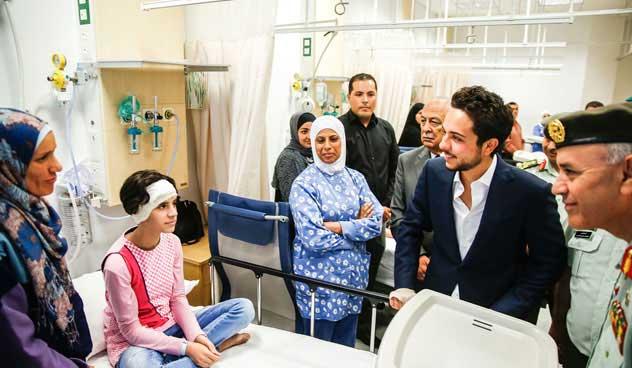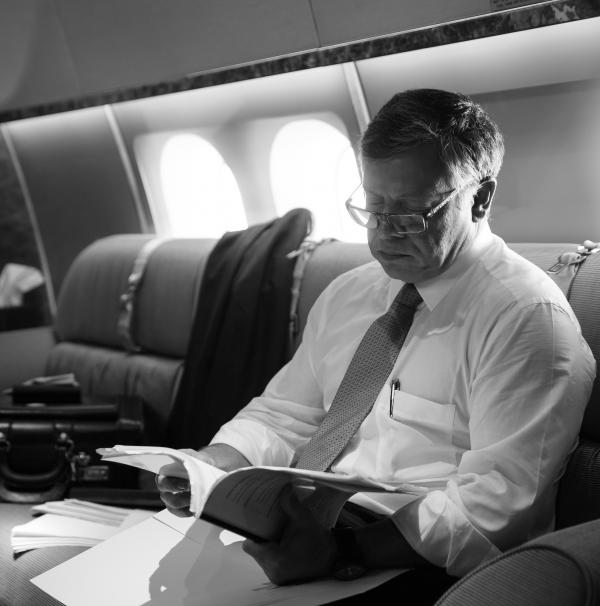Hearing without Borders Initiative

This initiative developed out of a vision of a “Jordan free of hearing disabilities”. It offers support and assistance in rehabilitating deaf children by facilitating cochlear implant procedures and providing them with speech therapy. It also seeks to raise society’s awareness of the causes of hearing disabilities.
Cochlear implant operations in Jordan
"Through the [Hearing Without Borders] initiative, we can, together, render Jordan free of hearing disabilities. In Jordan, our strength lies in our people. Each person has a voice and every voice is heard. This is the Hashemites message upon which this country was founded"
In 2003, under a Royal Benefaction (makruma), the first cochlear implant surgery was conducted by a medical team from the Royal Medical Services in cooperation with international specialists. Since then, cochlear implant surgeries have continued and the Kingdom now boasts specialised and highly skilled doctors in this field.
- Over 500 cochlear implant surgeries have been performed since 2003 at three medical institutions: The Royal Medical Services, Prince Hamzah bin Al Hussein Hospital and the King Abdullah I University Hospital — all under Royal benefactions.
- In 2013, Crown Prince Hussein directed concerned officials to look into sustainable solutions to this issue. Since then, the initiative has expanded, with the number of surgeries rising beyond 300.
Vision and Mission
A vision of “A Jordan free of hearing disabilities” is supported by assisting the rehabilitation of deaf children, providing them with cochlear implants, offering them speech therapy and raising society’s awareness of the causes of hearing disabilities. As His Royal Highness the Crown Prince said at the launching ceremony of Hearing Without Borders: “Together, and through the initiative, we can make Jordan free of hearing disabilities. In Jordan, our strength is in our people. Each person has a voice and every voice is heard. This is the message upon which the Hashemites built this country”.
Goals
- Treat deaf children through cochlear implants.
- Establish centres across the Kingdom for the rehabilitation of deaf children who receive cochlear implants.
- Train rehabilitation specialists to provide speech therapy for children.
- Train the families of children who receive cochlear implants to help their sons and daughters learn speech.
- Raise awareness on the causes of deafness, which mainly result from the marriage of relatives or due to other causes, such as meningitis.
- Conduct studies to identify the number of children who could benefit from this initiative as well as identify the types of cases of hearing disabilities and ways of treating these cases in cooperation with public and private hospitals in the Kingdom.
- Create a database for all the hearing tests of newborns.
Hearing Disabilities in Jordan and Treatment Costs
- Out of the approximately 172,000 children born in Jordan every year, two children out of every 1,000 newborns have congenital hearing defects.
- There are nearly 19,000 deaf people in Jordan.
- Most of those who suffer from hearing disabilities cannot fully communicate and interact with the community, although they have learned sign language.
- The cost of a cochlear implant and the following rehabilitation procedures amounts to around JD 16,000, while providing special education for a deaf person costs JD 6,000 annually.


